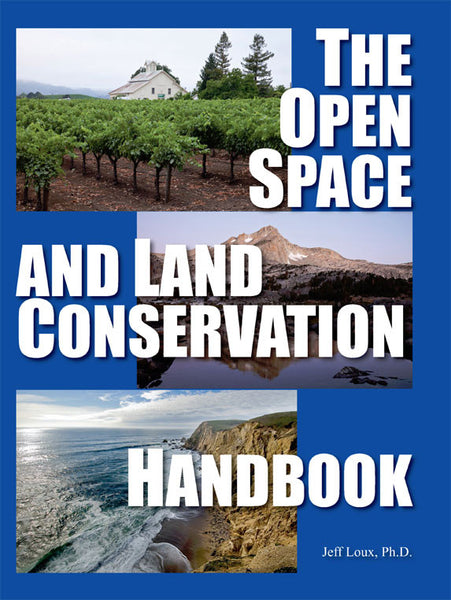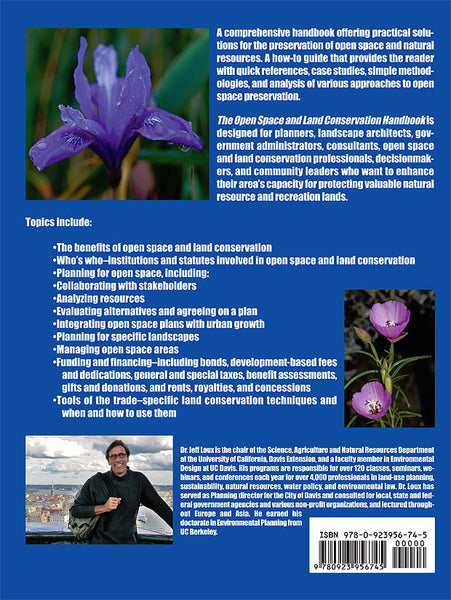Open Space and Land Conservation Handbook
- Item# OS
- ISBN: 978-0-923956-74-5
- Copyright (c) 2011
- Paperback
- Price: $65.00
E-book now available on Amazon.com.
ISBN: 978-1-938166-79-0
DESCRIPTION
A comprehensive handbook offering practical solutions for the preservation of open space and natural resources. A how-to guide that provides the reader with quick references, case studies, simple methodologies, and analysis of various approaches to open space preservation.
The Open Space and Land Conservation Handbook is designed for planners, landscape architects, government administrators, consultants, open space and land conservation professionals, decisionmakers, and community leaders who want to enhance their area's capacity for protecting valuable natural resource and recreation lands.
Topics Include:
- The benefits of open space and land conservation
- Who's who institutions and statutes involved in open space and land conservation
- Planning for open space, including: Collaborating with stakeholders
- Evaluating alternatives and agreeing on a plan Integrating open space plans with urban growth
- Planning for specific landscapes
- Managing open space areas
- Funding and financing - including bonds, development-based fees and dedications, general and special taxes, benefit assessments, gifts and donations, and rents, royalties, and concessions
- Tools of the trade - specific land conservation techniques and when and how to use them
ABOUT THE AUTHOR
Jeff Loux, Director of the Land Use and Natural Resources Program for the University of California at Davis Extension, is an Adjunct Faculty member in the Landscape Architecture Program in the College of Environmental Design. His Extension program is responsible for more than 100 classes, conferences, and training sessions each year for more than 3,000 professionals in land use planning, resource policy and management, water policy, and environmental law. Dr. Loux has served as Planning Director for the City of Davis and consulted for local, state, and federal governments and for various nonprofit organizations. He earned his doctorate in Environmental Planning from U.C. Berkeley.








